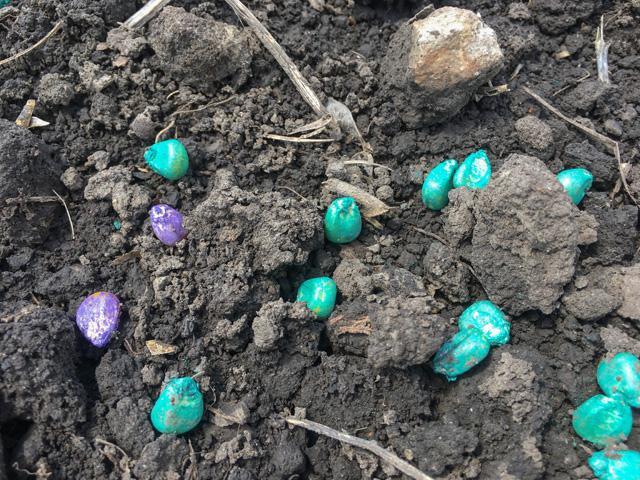Groups Sue California on Treated Seed
Environmental Groups Sue California to Force Regulation of Pesticide-Treated Seeds
LINCOLN, Neb. (DTN) -- Crop seeds treated with pesticides would be regulated as pesticides in California if a new lawsuit filed by environmental groups is successful.
The regulatory state of neonicotinoid-treated seeds has taken center stage in recent years when the future of the tiny village of Mead, Nebraska, was threatened by an environmental disaster at a now-defunct ethanol plant. The plant was shut down after piles of distillers grains made using pesticide-coated corn seed leached pesticides into the environment.
The EPA does not regulate pesticide-treated seed as pesticides, which is the same practice followed by the state of California.
Environmental groups led by the Natural Resources Defense Council asked a superior court in Alameda County, California, for a permanent injunction against the state on its treated-seeds policy.
The groups have asked the court to declare the state's treated-seed policy invalid as an "underground regulation" because the lawsuit alleges California is not complying with the Administrative Procedure Act.
"For decades, DPR (California Department of Pesticide Registration) has maintained a policy that treated seeds are not 'pesticides' subject to regulation," the lawsuit said.
P[L1] D[0x0] M[300x250] OOP[F] ADUNIT[] T[]
"Because DPR did not give notice to the public of this policy, allow members of the public to request hearings or comment on it, or otherwise comply with the requirements of the APA in adopting the treated-seeds policy, it constitutes an 'underground regulation' in violation of the APA. DPR's failure to regulate treated seeds allows one of the most widespread uses of pesticides in California to go wholly untracked, perpetuating significant harms to California's environment."
The NRDC is joined in the lawsuit by Californians for Pesticide Reform, Center for Biological Diversity, Friends of the Earth, and Pesticide Action Network North America.
In September 2022, EPA rejected a 2017 petition calling on the agency to regulate treated seed. In response to that petition, the EPA said it already "fully assesses" pesticides registered for treating seed to include effects on human health and the environment, https://www.dtnpf.com/….
In 2021, DTN reported that treated seeds were planted on an estimated 180 million acres.
The same groups filing the lawsuit this past week, previously filed a petition with the state of California in 2020 calling for the regulation of pesticide-treated seeds.
A study by Carleton University biology professor Pierre Mineau estimates the use of pesticide-treated seeds could result in the use of more than half a million pounds of pesticides that aren't regulated by the state, https://www.nrdc.org/….
In their lawsuit, the environmental groups said they believe there's evidence the pesticides on treated seeds do more than protect those seeds.
"DPR recognizes that generally only 2% to 3% of the neonics applied to treated seeds are absorbed by the target plant, leaving more than 90% of the pesticides in the soil, where they can persist for years and accumulate in successive planting seasons while also making their way into nearby waterways," the lawsuit said.
"Given the widespread use of neonic-treated seeds, these risks are not academic. Based on the most recent estimate, somewhere from 79% to 100% of conventional corn in the U.S. is grown from a neonic-treated seed. Most conventional cotton is also grown from neonic-treated seeds. In California alone, neonic-treated seeds may be used on up to 4 million acres each year."
The groups argue the state has the "duty to prohibit or regulate pesticides as necessary" to "protect the environment."
"It also must 'endeavor to eliminate from use in the state any pesticide that endangers the agricultural or nonagricultural environment, is not beneficial for the purposes for which it is sold, or is misrepresented,'" the lawsuit said.
"By effectively exempting treated seeds from regulation as pesticides under California law, DPR has shirked its duties, leading to environmental harms described above. Furthermore, by failing to follow APA requirements, DPR prevented those impacted by its treated-seeds policy from commenting on the policy before it was adopted. EPA policy presumes that seeds treated with pesticides have only been treated for the protection of the seed itself, and so treated seeds are not regulated by EPA."
Todd Neeley can be reached at todd.neeley@dtn.com
Follow him on Twitter @DTNeeley
(c) Copyright 2023 DTN, LLC. All rights reserved.





